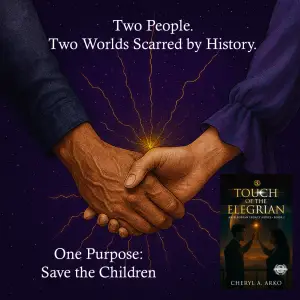A Dance of Near-Misses: My Thoughts on The Quantum Weirdness of the Almost-Kiss
When I first stumbled upon The Quantum Weirdness of the Almost-Kiss by E.J. Parks, the title alone had me hooked. It promised a whimsical journey through the foggy terrain of adolescent emotions and unspoken love. However, this novel turned out to be an intriguing mix of engaging storytelling and, frustratingly, a romance dynamic that left me utterly vexed.
At the heart of the story is Caleb, a young man who has been nursing unreciprocated feelings for his best friend, Evie. This unrequited love is brought to life through an interminable list of “almost kisses,” moments that paint a bittersweet picture of longing but also venture into mildly creepy territory. As I read about Caleb’s obsessive cataloging of these moments, I couldn’t help but cringe. The narrative swayed into “nice guy” territory, burdening Caleb with a sense of entitlement to Evie’s affections simply for being there for her. It’s a relationship dynamic that I’m done seeing in fiction.
What resonated with me, however, was the authenticity of Evie’s character. Her struggle with mental health—especially as it relates to her mother’s overwhelming concern—adds a layer of complexity that I appreciated. The openness to therapy felt refreshing, even if it was shadowed by Caleb’s ultimately selfish actions. In this respect, Parks does an admirable job of addressing mental health without sugarcoating its challenges. Yet, I found it disheartening that these themes often took a backseat to the romance plotline, leaving a disjointed feeling that undercut some of the book’s more meaningful messages.
The writing style is another area where Parks shines. The prose flows smoothly, and I enjoyed the humor interspersed throughout the narrative. However, distinguishing between Caleb and Evie’s voices proved to be a challenge; Caleb’s came across as much stronger—almost as if he overshadowed Evie’s own narrative. Moreover, while the mathematical references scattered throughout intrigued me, I often found myself lost, yet they were presented in a way that didn’t alienate me entirely.
One of my favorite moments in the book captures the essence of Caleb’s despair beautifully: “For a while there, I didn’t think I had a chance. The girl never ends up with the funny best friend when there’s a dark and brooding stranger around.” It’s a relatable sentiment—one that many readers can empathize with—but then we’re led into murky waters where Caleb’s jealousy manifests in catfishing Evie online. This plot twist not only felt unnecessary but also creepy, straying far from what I consider acceptable friendship behavior.
In the end, The Quantum Weirdness of the Almost-Kiss serves as a complex exploration of friendship, love, and the messy intertwining of the two. While I can see that many readers may enjoy the humor and authentic character flaws, I can’t fully endorse the romantic elements that use jealousy and entitlement as plot devices. If you’re in the mood for a book exploring almost-kisses and quirky friendships but can overlook problematic romantic tropes, you might find this worth picking up.
For me, it was a ride worth taking, even if it was often a frustrating one. Here’s to hoping for a more balanced relationship narrative next time!
[ad_2]
Discover more about The Quantum Weirdness of the Almost-Kiss on GoodReads >>






